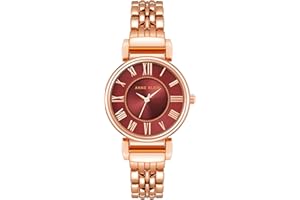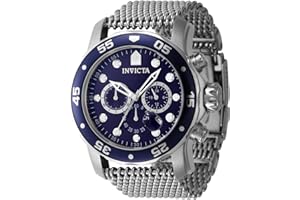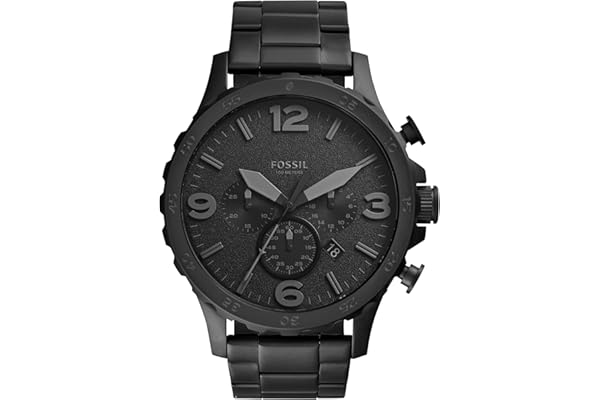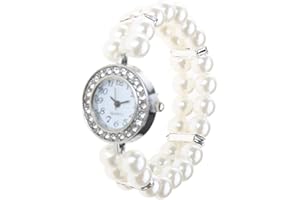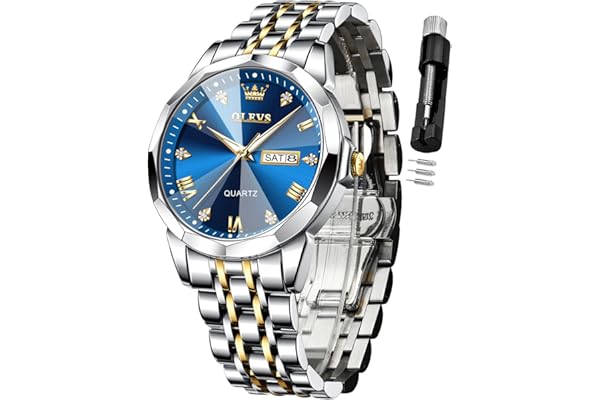Differences Between Swiss and Japanese Watches
Contents
Introduction to Swiss and Japanese Watches
When it comes to the world of horology, two countries stand out for their significant contributions: Switzerland and Japan. Both nations have established themselves as leaders in watchmaking, each with a unique approach and philosophy. Swiss watches are renowned for their luxury, craftsmanship, and heritage, while Japanese watches are celebrated for their innovation, precision, and affordability. Understanding the differences between these two types of watches involves exploring their histories, technological advancements, and market positioning.
Switzerland has long been synonymous with fine watchmaking. The Swiss watch industry boasts a history that dates back several centuries, with brands that have become iconic symbols of elegance and prestige. The Swiss approach to watchmaking emphasizes meticulous craftsmanship, often involving extensive manual labor and attention to detail. This dedication to quality has allowed Swiss watches to maintain their status as luxury items, often associated with wealth and sophistication.
In contrast, Japan entered the watchmaking scene relatively recently, but quickly made a name for itself through innovation and technology. Japanese watchmakers have focused on precision engineering and mass production techniques, allowing them to produce reliable timepieces at a more accessible price point. The introduction of quartz technology in the 1960s, led by Japanese companies, revolutionized the industry and challenged the dominance of mechanical watches.
Despite their differences, both Swiss and Japanese watches have garnered dedicated followings worldwide. Collectors and enthusiasts often debate the merits of each, with personal preferences playing a significant role in their choices. While some may prefer the tradition and heritage of Swiss watches, others may be drawn to the innovation and practicality of Japanese models. Ultimately, the decision between the two often comes down to individual tastes and needs.
Craftsmanship and Quality
Swiss watches are renowned for their exceptional craftsmanship and quality, attributes that have been meticulously honed over centuries. The hallmark of Swiss watchmaking is its dedication to precision and attention to detail, which is evident in the construction of each timepiece. From the intricacy of the mechanical movements to the fine finishing of the case and dial, Swiss watches are often considered works of art. This level of craftsmanship is achieved through a combination of traditional techniques and modern innovations, ensuring that each watch meets the highest standards of quality.
In Switzerland, the process of creating a watch often involves numerous skilled artisans, each specializing in a particular aspect of the watch’s construction. This collaborative effort ensures that every component is crafted to perfection. The result is a timepiece that not only functions flawlessly but also exhibits a timeless aesthetic appeal. Swiss watchmakers take pride in their heritage and continue to uphold the traditions that have made their watches highly sought after around the world.
Japanese watches, while differing in approach, are also celebrated for their quality and reliability. Japanese watchmakers prioritize precision and efficiency in their manufacturing processes, often employing cutting-edge technology to achieve remarkable accuracy. The use of advanced materials and innovative techniques allows Japanese watches to deliver exceptional performance at a competitive price. While they may not have the same level of artisanal craftsmanship as their Swiss counterparts, Japanese watches are highly regarded for their durability and dependability.
One of the defining characteristics of Japanese watchmaking is its emphasis on functionality and practicality. Japanese brands have pioneered the use of quartz movements, which offer superior accuracy compared to traditional mechanical movements. This focus on precision has made Japanese watches a popular choice for those who value reliability and precision above all else. Additionally, Japanese watchmakers have been at the forefront of developing features such as solar power and atomic timekeeping, further enhancing the practicality of their timepieces.
Technological Innovations
Technological innovation is a key differentiator between Swiss and Japanese watches, with each nation taking a distinct approach to advancement. Swiss watchmakers have traditionally focused on refining mechanical movements, pushing the boundaries of what is possible within the realm of traditional watchmaking. This dedication to mechanical excellence has led to the development of complex complications, such as tourbillons, perpetual calendars, and minute repeaters, which are highly prized by collectors and enthusiasts.
In recent years, Swiss brands have also embraced modern technology, incorporating features such as smart connectivity and hybrid movements into their offerings. This blend of tradition and innovation allows Swiss watches to appeal to a wide range of consumers, from those who appreciate classic craftsmanship to those who seek the latest technological advancements. The ability to seamlessly integrate cutting-edge technology with timeless design is a testament to the adaptability and ingenuity of Swiss watchmakers.
Japanese watchmakers, on the other hand, have been at the forefront of electronic and quartz technology since the 1960s. The introduction of quartz movements by Japanese companies revolutionized the watch industry, offering unprecedented accuracy and affordability. This innovation not only challenged the dominance of mechanical watches but also set the stage for further advancements in electronic timekeeping.
Japanese brands continue to lead the way in technological innovation, with features such as GPS synchronization, radio-controlled timekeeping, and solar-powered movements becoming commonplace in their watches. These advancements reflect the Japanese emphasis on functionality and practicality, ensuring that their watches remain relevant in an increasingly digital world. By prioritizing innovation and technology, Japanese watchmakers have positioned themselves as leaders in the field of precision timekeeping.
Market Positioning and Consumer Perceptions
Swiss and Japanese watches occupy distinct positions in the global market, each appealing to different segments of consumers. Swiss watches are typically positioned as luxury items, with a focus on exclusivity, heritage, and craftsmanship. This positioning is reflected in their pricing, with many Swiss brands commanding premium prices due to their reputation for quality and prestige. The allure of Swiss watches often lies in their association with status and sophistication, making them a popular choice for those who value luxury and elegance.
The Swiss watch industry is dominated by a handful of iconic brands, each with a storied history and a commitment to excellence. These brands have cultivated a loyal following among collectors and enthusiasts, who are willing to invest in timepieces that are not only functional but also embody a rich cultural legacy. The appeal of Swiss watches extends beyond their technical attributes, encompassing the intangible qualities of tradition and artistry that set them apart from mass-produced alternatives.
Japanese watches, in contrast, are generally positioned as accessible and practical timepieces, offering exceptional value for money. The focus on innovation and efficiency allows Japanese brands to produce high-quality watches at competitive prices, making them an attractive option for a broad range of consumers. The reputation of Japanese watches for reliability and precision has earned them a loyal customer base, particularly among those who prioritize functionality and affordability.
Despite their differences in market positioning, both Swiss and Japanese watches have successfully carved out niches within the global watch industry. Consumer perceptions of these watches are shaped by a combination of brand reputation, product features, and personal preferences. While Swiss watches may be perceived as luxury items, Japanese watches are often seen as practical and innovative solutions for everyday wear. Ultimately, the choice between Swiss and Japanese watches depends on individual needs and priorities, with each offering unique benefits that cater to different lifestyles and tastes.
Conclusion: Choosing Between Swiss and Japanese Watches
When deciding between Swiss and Japanese watches, potential buyers should consider several factors, including craftsmanship, technology, market positioning, and personal preferences. Swiss watches are synonymous with luxury, tradition, and craftsmanship, appealing to those who value heritage and artistry in their timepieces. Japanese watches, on the other hand, are celebrated for their innovation, precision, and affordability, making them a practical choice for those seeking reliable and technologically advanced watches.
One of the key considerations in choosing between the two is the intended purpose of the watch. For those seeking a statement piece that exudes elegance and sophistication, a Swiss watch may be the ideal choice. The intricate craftsmanship and timeless design of Swiss watches make them a symbol of prestige and refinement, suitable for formal occasions and special events. Conversely, for individuals who prioritize functionality and modern features, a Japanese watch may offer the best combination of practicality and technology, suitable for everyday wear and active lifestyles.
Ultimately, the decision between Swiss and Japanese watches is a personal one, influenced by individual tastes and requirements. Both types of watches have their own distinct advantages, and the choice often comes down to what the buyer values most in a timepiece. Whether it is the luxury and heritage of Swiss watches or the innovation and precision of Japanese watches, there is a watch to suit every preference and lifestyle.
In conclusion, the differences between Swiss and Japanese watches reflect the diverse approaches and philosophies of their respective watchmaking industries. By understanding these differences, consumers can make informed decisions that align with their needs and desires. Whether choosing a Swiss or Japanese watch, buyers can be confident in their investment, knowing they are acquiring a timepiece that embodies the best of what each nation has to offer in the world of horology.

